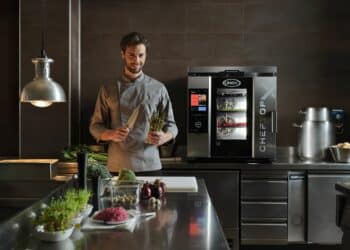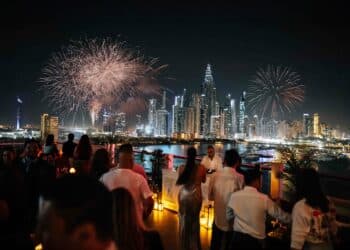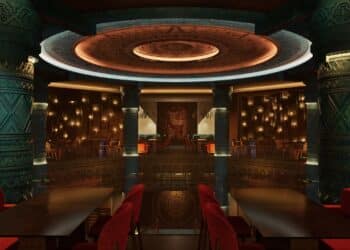With global security challenges not an un-noticed challenge in the Middle East, travellers demand safe and secure hotel accommodations and responsive and friendly customer service. Hotel News ME finds out how hoteliers can ensure that their property provides as secure an environment as possible. 
It can take up to 20 years to build a reputation and only five minutes to ruin it. A single act of crime or security breech at a property runs the risk of diminishing a brand. Hotels are now required to partner with experienced physical security providers to ensure that the entire staff understands the need to keep security a top priority.
In the eventuality of a crisis, how should hotels approach their planning strategy?
Narang: Each hotel should have a plan in place that is well understood by all property staff. Training should be conducted on a regular basis to ensure familiarity with procedures, and enhanced effectiveness during any particular situation. With a number of factors making some crisis scenarios more likely than others or changing the way that some may develop, hoteliers need to keep a vigilant eye on what the latest and most appropriate strategies are.
To further maximise a plan’s effectiveness and minimise any harm, properties should also leverage any security solutions that are in place and integrate their use into planning strategies. Hoteliers should check with their respective security solution providers on how to best go about implementation.

Mundell: More than ever hotels and leisure facilities should as a basic rule of operation have in place reference to a master security plan. This must be evaluated and tested at least once a year or as the operating environment evolves. The plan is designed not only to document the key threats and risks potentially facing the facility, but it will provide the security framework for the hotel’s safe operation, whilst helping mitigate the risks they face on a daily basis.
What are the top pointers to ensure that a hotel is secure against a crisis or a threat?
Narang: To ensure the best results, hotels must put strategies to the test by creating artificial crisis scenarios, in order to gauge the effectiveness of a particular plan. This not only provides hotel staff with an opportunity to rehearse and improve their crisis-handling skills, but also allows management to observe which parts of a plan require adjustment or additional training.
Mundell: Being prepared and understanding in detail the specific threats and the implications of these threats to the hotel is critical. It is only then that measures can be put in place that will assist in mitigating the threats that any strong security survey would identify. Once in place the need to brief, train and exercise staff against potential scenarios is key to any such plan having the desired affect for the hotel, its guests and staff.
What are some of the latest technologies available on the market for the hospitality industry, and what new advancements do you expect to see in the near future?
Narang: RFID technology has been one of the most game-changing innovations to revolutionise hotel operations in recent years, with security being no exception. Features such as superior anti-cloning technology ensures that only authorised users obtain entry to respective areas by preventing attempts at key copying, an issue which can be very common with older technologies. Online access control systems have also significantly enhanced abilities to maintain a secure and safe hotel environment, by providing far greater control and tracking of all property access areas. By using such a platform, the ability to remotely cancel keycards and prevent access to certain areas can be vital during an emergency, either by blocking access to hazardous areas or by preventing unauthorised threats to security from gaining access. Should a security-related situation take place, the ability to remotely access individual door lock audit trails can assist greatly with discovering whether a breach actually took place, and can provide insight into preventing similar circumstances from recurring in the future.
Mundell: Security technology is constantly evolving, as is the threat faced by the hospitality and hotel industry. Whilst CCTV and standard access control systems are common place, solutions providers are now stepping in to design a single system solution where the data from multiple standalone systems is received and managed back in the central control room.

The global industry has seen an increase in the use of crash gate barriers, automatic number plate recognition (ANPR) systems and vehicle scanning devices, with the sole aim to detect and prevent threats before they even get close to the hotel facility. Inside the hotel, yet further developments in the use of technology for the leisure industry are designed to make security more effective, whilst being less intrusive, so the automatic scanning of people and their luggage requires no effort on the part of the guest as scanners are placed out of sight from the ever constant flow of guests. Ultimately, security technology is enabling hotels to continue to be customer focused while ensuring they can meet their duty of care to their guests by providing the safest possible environment.
What are the current trends being seen in the Middle East regarding the security within a hotel?
Narang: As with other hospitality markets around the globe, security is among the top priorities for hoteliers at all levels of property operations within the Middle East. Issues such as identity and sensitive data theft are becoming a growing concern as they increase in frequency. Hotels as a result must ensure that effective solutions and procedures are in place to offset any attempts to undermine guest safety and peace-of-mind.
What elements of hotel security should be outsourced and why?
Narang: The decision to outsource any particular security element largely depends on individual environmental factors of a given property. This may also be determined by regional or national circumstances or requirements. Hotels considering outsourcing any aspect of security must fully understand all implications of the decision in order to determine the best course of action, and maintain the highest level of guest security possible.
Mundell: We get lots of requests for implementing security technologies such as access control, perimeter fencing, command and control centers, Detection Systems, CCTV, Video Analytics, Social Media monitoring, under vehicle scanning, intrusion detection and biometrics to name just a few.
Our biggest clients are requesting a fully integrated life-cycle security model where technology is developed with the whole system in mind, ensuring whatever technology is invested in will be cost effective and secure in the long term. Hotels are working in partnership with outsourced security experts to plan and implement their whole security requirement. This could include security risk management models, conceptualisation and design of security infrastructure, operations and management right through to manguarding and training or all of the above.


































































